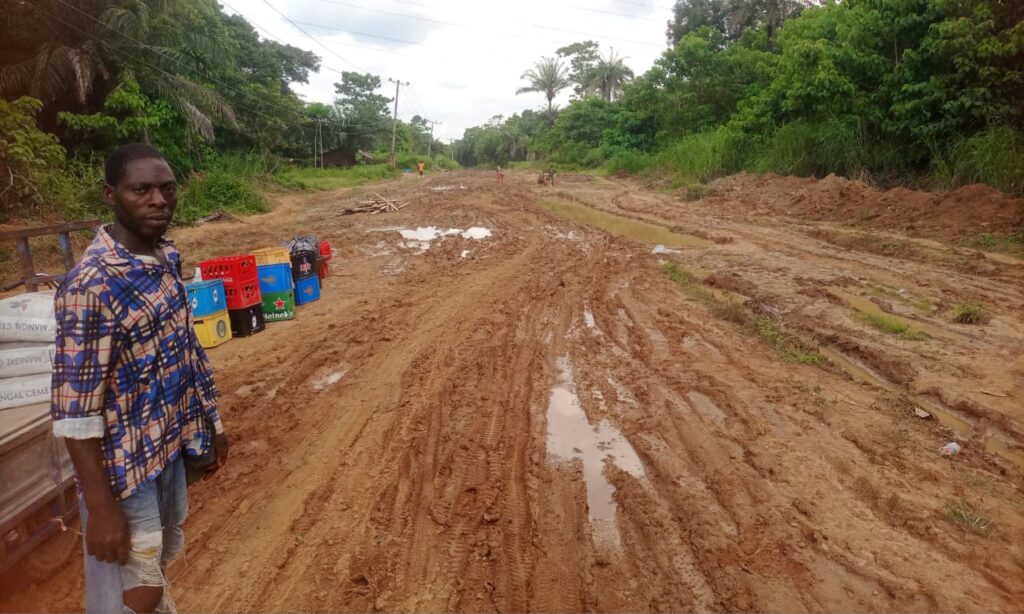
Residents of Nkalaha Community, located in the Ishielu Local Government Area of Ebonyi State, Nigeria, are expressing their frustration over the dire condition of the sole access road leading into their community. This northern area of Ishielu is bordered by several other communities, including Obeagu, Amazu, Umuahia, Ngbo, Effium, and Eha-Amufu, as well as some in Benue State.
Nkalaha, much like its neighbor Obeagu, faces significant accessibility issues, with the only means of reaching the area being through motorcycles or by foot. Despite attempts at self-help initiatives, residents have found it difficult to secure the funds necessary to address these road challenges.
Home to around 10,000 residents, most of whom are engaged in farming, Nkalaha has seen its economic prospects dim due to the poor state of its access road. The community is also near NIGERCEM, a once-thriving cement factory that played a crucial role in the economic landscape of Eastern Nigeria.
To get to Nkalaha, visitors must travel to Egedegede Junction on the Nkalagu-Eha-Amufu road, where they must abandon their vehicles for commercial motorcycles, commonly known as Okadas. The condition of the road forces Okada operators to charge between N1,500 and N4,000 for the roughly five-kilometer journey. Often, passengers are required to walk part of the way to avoid getting the motorcycles stuck in the mud.
Residents have urgently called for government intervention to improve the road conditions, which they believe would facilitate agricultural activities and improve mobility. One road user, Chikodi Odo, lamented, “This road is too bad. People are suffering; we need help.” She mentioned that only tractors are currently able to transport agricultural products from Egedegede Junction to Nkalaha.
Farmers James Eze and Precious Edeh echoed her sentiments, sharing that the road’s poor condition discourages traders from visiting their local Orie Market, particularly during the rainy season. “We struggle so much to move our goods. The situation is dire,” they stated.
The impact of the road conditions extends to the community’s ability to handle deaths. Investigations have revealed that some corpses of residents who passed away outside the community have remained in mortuaries for months, as ambulances are unable to navigate the roads. For those who die within Nkalaha, their remains are transported via motorcycles, often requiring them to be stored until the dry season for burial.
Samuel Odo recounted the harrowing experience of bringing his father’s body home two months ago. “When we tried to bring the corpse back, the vehicle got stuck in the mud for hours. We were only saved by a tractor from a nearby farm that helped us move the body,” he explained. He noted that attendees of the burial had to trek several kilometers due to the impassable roads.
In 2020, the Ebonyi State Government allocated N10 million to assist the community, and a contract was awarded for the construction of a bridge over the Ora River to connect Nkalaha to other parts of the state. However, like similar projects in neighboring Obeagu, this initiative was abandoned after the contractor was fully paid.
A local trader reflected on the ongoing struggles, stating, “This road has been in disrepair for as long as I can remember. We’ve repeatedly called on the government for assistance, but nothing has changed. The only way to transport goods is by wheelbarrow or by carrying them on our heads, which inflates our costs significantly.”
For updates and community news, join our WhatsApp channel: WhatsApp Channel